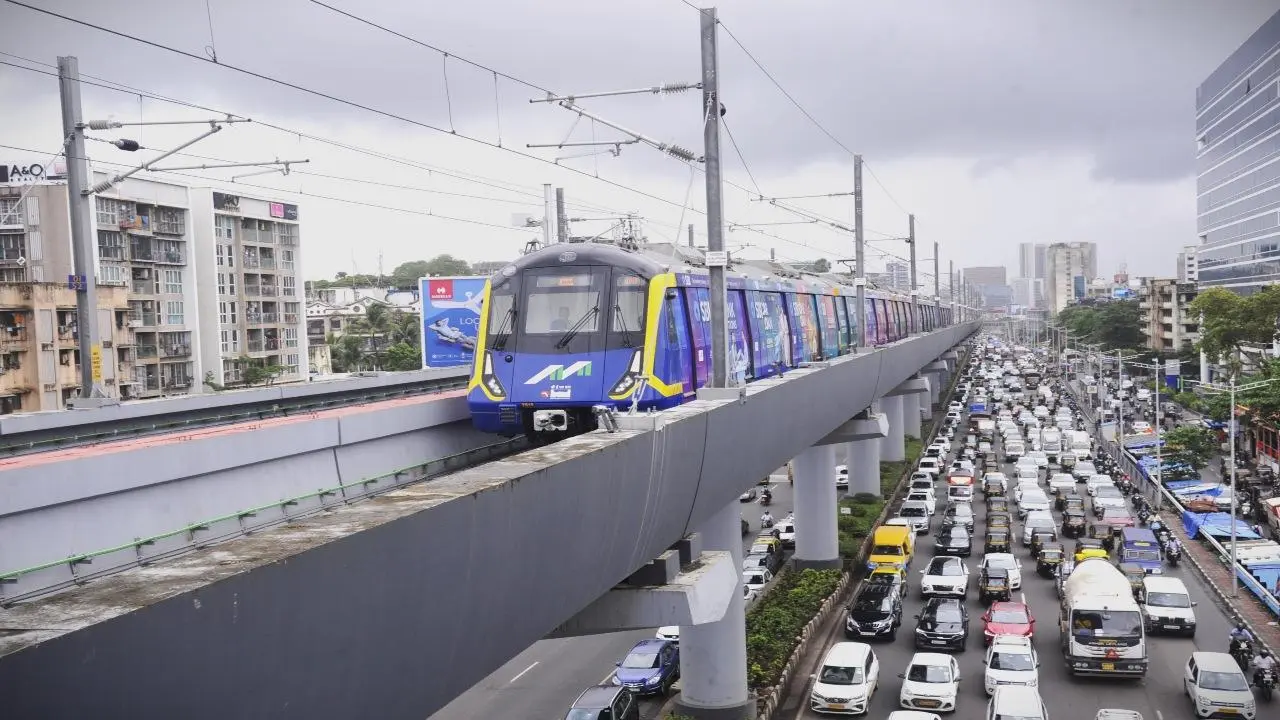The authorities overseeing Metro Lines 2A and 7 have launched a comprehensive monsoon preparedness programme to ensure uninterrupted service and passenger safety during heavy rains.
In response to frequent disruptions caused by monsoon weather, the Mumbai Metropolitan Region Development Authority (MMRDA) and the Maha Mumbai Metro Operation Corporation Limited (MMMOCL) have taken significant steps to strengthen infrastructure and operational readiness. These measures come after the recent rainfall caused delays and interruptions on Metro Line 3, highlighting the need for robust contingency planning. To better monitor weather conditions and respond swiftly, wind velocity sensors have been installed at key stations along Lines 2A and 7. This allows real-time data gathering, enabling the metro control centre to make informed decisions about train operations during adverse weather.
Service frequency has been increased in flood-prone areas to reduce passenger crowding and waiting times, easing commuter flow even during heavy downpours. Alongside this, more than 64 high-definition CCTV cameras at each station provide constant surveillance to enhance commuter safety and security. Technical teams have conducted thorough inspections of electrical systems including diesel generators, uninterruptible power supplies, lightning arrestors, and dewatering pumps to ensure all equipment performs optimally during wet conditions. Additionally, waterproof testing of all trains has been completed to guarantee no leaks compromise passenger comfort or safety.
Infrastructure maintenance has been a priority, with cleaning of rainwater drainage systems, gutters, and sewer lines across stations to prevent waterlogging. Electrical insulators and cables have also been checked and serviced, reinforcing system integrity and reducing the risk of power failures during storms. At the operational level, dedicated nodal officers coordinate local efforts, with pothole repair vehicles and pumps strategically stationed near vulnerable points. Traffic wardens have been deployed around metro stations to manage pedestrian and vehicle movement, preventing congestion and accidents in slippery conditions.
A 24×7 monsoon control room with direct links to the city’s Disaster Management Cell ensures constant monitoring and rapid response to any emergencies. Emergency helplines are also active, providing commuters with timely assistance if required. MMMOCL officials emphasise that these measures are part of a long-term commitment to providing safe, efficient, and eco-friendly urban transit. By prioritising advanced infrastructure and rapid response capabilities, Mumbai Metro aims to uphold its promise of reliable public transport even amid the challenges posed by Mumbai’s monsoon climate.
As Mumbai continues to expand its metro network, such proactive safety and maintenance initiatives are critical to supporting a sustainable, resilient urban transport system — one that safeguards millions of daily commuters while advancing the city’s broader goals for eco-friendly and equitable urban mobility.
Also Read : Badlapur to Kanjurmarg Metro Line 14 Set for 2026 Launch


